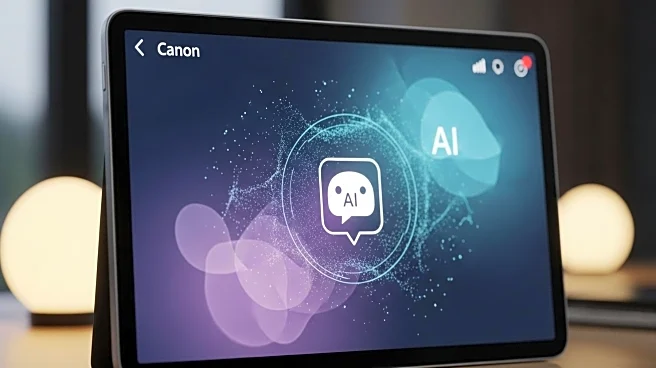What is the story about?
What's Happening?
Slack, the team communication platform, is upgrading its Slackbot assistant with AI enhancements to transform it into a more interactive AI chatbot. Announced at the Dreamforce tech conference in San Francisco, Slackbot will integrate with AI models from companies like OpenAI, Anthropic, and Perplexity. These enhancements will allow enterprise users to converse with Slackbot, enabling it to assist with projects, analyze documents, and perform tasks on behalf of users. Slackbot will also integrate with services like Google Drive, One Drive, and Salesforce. Currently in beta, the AI-enhanced Slackbot is available to 70,000 users, with plans for a broader release in January 2026.
Why It's Important?
The integration of AI into Slackbot signifies a broader trend of AI adoption in enterprise applications, aiming to streamline workflows and enhance productivity. By transforming Slackbot into a more capable assistant, Slack is positioning itself competitively against rivals like Microsoft Teams, which has also been incorporating AI features. This development could lead to increased efficiency in business operations, as AI-driven tools can automate routine tasks and provide insights, potentially reducing the need for manual intervention. The move reflects the growing demand for AI solutions in the workplace, driven by the success of AI models like ChatGPT.
What's Next?
Slack plans to roll out the AI-enhanced Slackbot to all users in January 2026, with further expansions expected later in the year. Companies will have the option to disable Slackbot if desired. As AI continues to evolve, Slack may introduce additional features and integrations to further enhance its platform. The competitive landscape in team communication tools is likely to intensify, with companies seeking to leverage AI to offer more sophisticated and efficient solutions to their users.
Beyond the Headlines
The integration of AI into Slackbot raises questions about data privacy and security, as AI models often require access to sensitive information to function effectively. Companies will need to ensure robust security measures are in place to protect user data. Additionally, the increasing reliance on AI in workplace tools may lead to shifts in job roles, with employees focusing more on strategic tasks as AI handles routine operations.
















